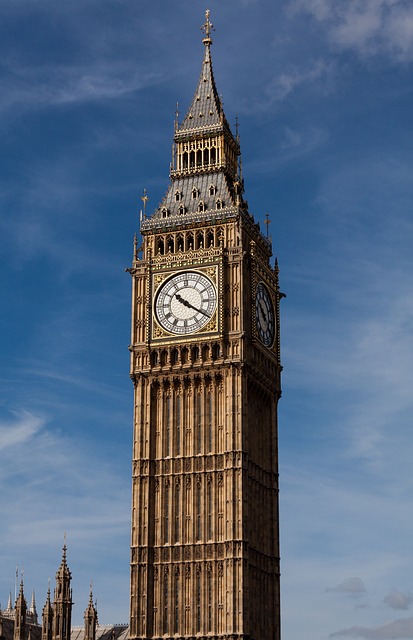Towards an Accountable Foreign Policy
By Roy Lee
Published on March 9, 2016

I am shocked to learn that a record number of nearly 60 million people live exiled from their homes in 2014 (Guardian, 18 June 2015), and that the conflict in Syria alone contributed some 11 million refugees and internally displaced people to this total. I believe that this is but one example of the consequences of unaccountable foreign policy made in the major capitals of the world.
Decisions made in London, Washington DC and Paris have momentous consequences on the lives (and deaths) of folk in every town and village in Syria. Was the UK government right to encourage the Arab Spring? Was our government right to intervene in Libya but not in Syria? Was our government right to give no more than token assistance to the anti-Assad movement in Syria, when Assad’s forces were barrel-bombing and using chemical weapons on Syria’s rebels and civilians?
The flaw in our democratic political systems is that citizens of Syria don’t have a voice in London, DC and Paris. Democracy sucks for those without votes – their cries of agony and suffering fade like whispers in the wind until they get on a boat and die in their hundreds or thousands right in our backyard. Neither do they get to give evidence in a Parliamentary select committee like the victims of phone hacking.
We have a Foreign Affairs committee in the UK Parliament, but does anyone know what it does? I had to Google it to find out that it exists. When was the last time this committee hauled up the Executive over bad foreign policy? When was the last time they questioned arms exports to repressive States like Mobarak’s Egypt or Saudi Arabia?
Occasionally, there is a public inquiry such as the Chilcott Inquiry into the UK’s role in the Iraq War, but its remit is limited to learning lessons to ensure that the British government is equipped to respond in the most effective way ‘in the best interests of the country’ (whatever that may be). The inquiry took the evidence of politicians, former cabinet ministers, senior civil servants and diplomats, but no one was particularly interested in hearing from the poor Iraqi blighter who lost his leg, wife and seven kids to British bombs in the blitzkrieg leading up to the invasion of Iraq. 5 years after the inquiry concluded, we still don’t know how we messed up so badly and who was responsible, as the Chilcott inquiry continues to be tied up in knots over national security, relations with the USA and Cabinet confidentiality.
The current refugee crisis on the flanks of the EU shows starkly that UK foreign policy does not work. Never has – just think of the billions of aid money poured out in the decades since WW II, and how little there is to show for it. Poverty is still at abysmal levels globally and the governments of friendly countries that we have cultivated and showered with aid (technical, financial and military) are still mostly basket cases; that is if they are not busy detaining and torturing their own citizens. The chickens have now come home to roost, in the form of the ‘boat people’ dying in Europe’s backyard.
The answer is to make the Government accountable for foreign policy in the same way that it is accountable for domestic policy. We (the collective public) need to question our Ministers, hold them to account and minutely scrutinise the detail of UK foreign policy, in the same way that policy and law on health, education, justice and the media is put under the microscope. After all, we cop the consequences when they get it wrong.
Historically, foreign policy and foreign relations was (and still is) in the hands of Ministers and not Parliament. The Government is left to decide what is in the best interests of the nation, with very little guidance. As a result foreign policy is made in smoke-filled rooms or golf courses, away from the prying eyes of the public and the media. In today’s interconnected, electronically-linked global village, this is neither rational nor acceptable. The foreign policy our Government makes today comes back very quickly to bite our collective behinds, unless they get it right. 800 years of democratic evolution since the Magna Carta have shown us that the only way to ensure the Government gets it right is to constantly question, harangue and criticise it. And to make sure that it requires Parliamentary approval for major decisions. Occasionally, the Government deigns to ask for Parliamentary approval (such as the Parliamentary vote on military action in Syria for Assad’s use of chemical weapons) but this is very ad hoc, and not required under Constitutional law and convention. Moreover, it seems ridiculous that Parliamentary votes on such life-and-death matters are taken on a one-off basis, rather than e.g. the three readings, Committee stage and report stage, required in each of the House of Commons and House of Lords for any legislative Bill, however trivial and insignificant.
Parliament should make laws to control Government decisions about foreign policy. An Act of Parliament to control these decisions would require Parliament, the public and the media to scrutinise all foreign policy made by the Government. It could spell out what Government should aim to achieve in its foreign relations, instead of leaving it to Cabinet to make foreign policy on the hoof, in what can only be good for the short term interests of the nation at a particular time (for example arms sales to Mobarak’s regime in Egypt or Saudi Arabia, or turning a blind eye to Bahrain’s detention, torture and sexual assault of pro-democracy protesters).
Such an Act of Parliament could prioritise democratic values and human rights, for a start. It’s not about how much money we can make today (as the recent banking and sub-prime crisis would have shown) or which dictator supports our national interests and foreign policy today (as our previous misguided support for Saddam Hussein shows).
If we had strict democracy and human-rights controls on foreign policy over the last few decades, I doubt if we would be facing the humanitarian crisis on the shores of the EU that we are faced with today. Nor, arguably the threat of Islamic-banner-waving terrorism coming from the inhabitants of some of the world’s most repressive and undemocratic countries, backed by US and UK recognition, foreign aid and arms.
The Author

Roy Lee is a lawyer, legislative drafter and former legal consultant who lives in Guernsey. He has practised public law, drafted legislation or consulted in New Zealand, Australia, the Cook Islands, Guyana, the USA, Kyrgyzstan, Afghanistan and Guernsey.
Previous clients include NZAID, the European Commission, the World Bank, the IMF, UNDP and the Commonwealth Secretariat. He grew up in Malaysia and holds an LLB (Hons) from Victoria University of Wellington, New Zealand.
His pet obsessions are human rights, democratic governance, foreign policy (or what passes as it), international development, education, and law and economics. He is an enrolled barrister and solicitor of the High Court of New Zealand and the Supreme Court of Victoria, Australia.
This article first appeared in the author’s blog in June 2015: https://orangforeign.blogspot.com/2015/06/towards-accountable-foreign-policy.html
The author welcomes feedback, which can be left as comments on his blog or by emailing him at orangjurist@gmail.com.
Article picture: WikimediaImages via Pixabay


